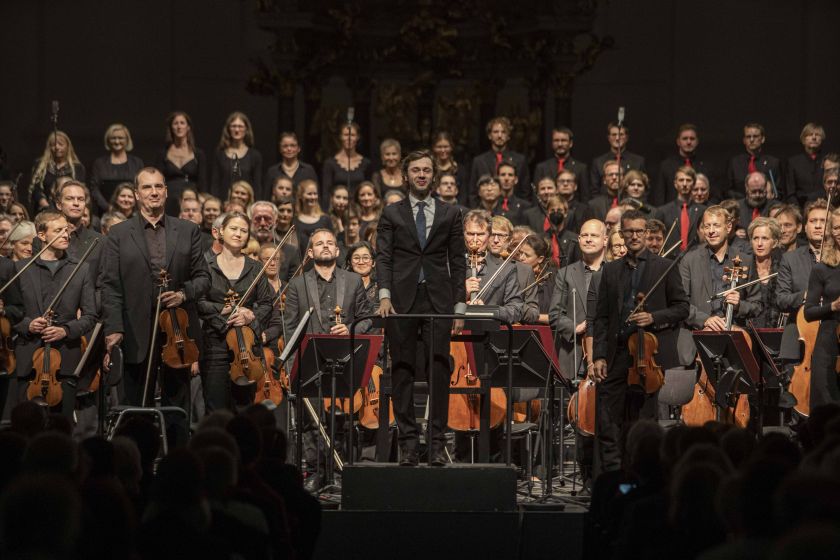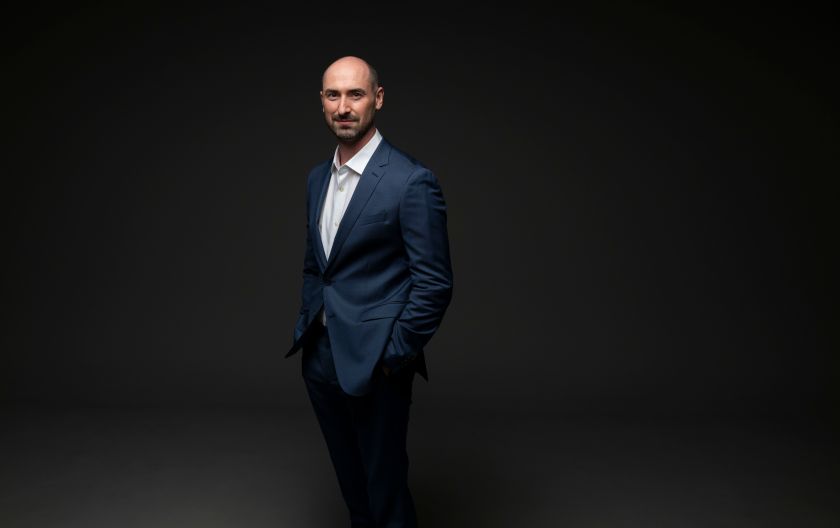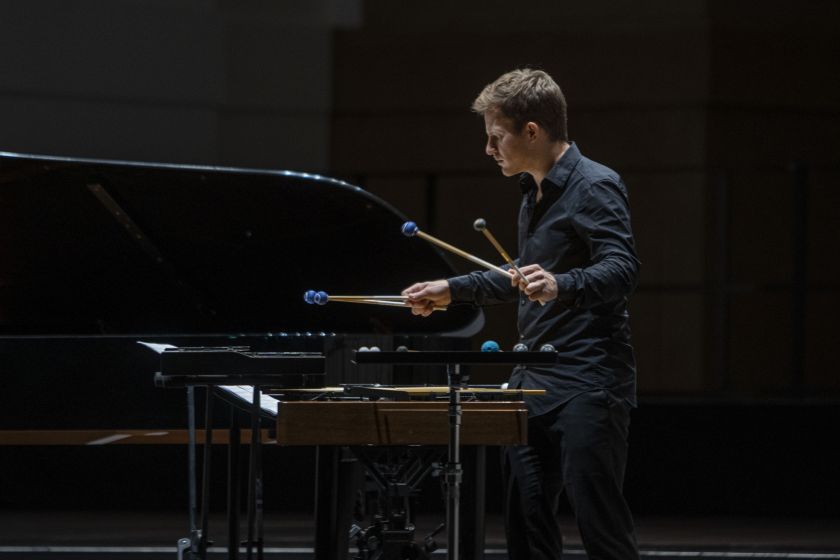Waiting in Expectancy

„Et exspecto“: the 2024 Ouverture spirituelle revolves around the hope that transcends death, but also gives voice to doubt and desperation when faced with finality.
It is the beginning of the last verses in the Christian creed: et exspecto. “And I await the resurrection of the dead and eternal life,” or more precisely: “the life of the coming age”. It is interesting that the credo (I believe) that came before is replaced here by “I await”: perhaps because the other articles of faith are already in effect in the present, while the events of the end time necessarily lie in the future. A better future was one of the goals driving Luigi Nono and his work. The fact that his music has the power to make utopias palpable, thus formulating long-term expectancy and hope, is one that Salzburg’s audiences have been able to ascertain time and again.
In 2024, Nono would have turned 100 – and the Festival revisits a modern classic from his pen: Il canto sospeso (1956). In this – literally – “suspended chant”, Nono used farewell letters by people executed for joining the anti-fascist resistance, setting them to music according to the precepts of serialism, but also with an eye on the effects of spatial sound, renaissance polyphony as well as Italian madrigals – abstract, altered: wearing a mourning band, so to speak. Tobias Moretti as narrator leads the cast of soloists joining the ORF Radio-Symphonieorchester Wien and the Bavarian Radio Chorus. Maxime Pascal on the conductor’s podium combines Nono with an older colleague who shared his notion that art must insist on social and political attitudes: Luigi Dallapiccola. Il prigioniero is a one-act piece which is as dark as it is stringent and gripping, in which the Spanish Inquisition serves as a foil to also discuss the horrors of World War II. Tanja Ariane Baumgartner, Georg Nigl and John Daszak guarantee goosebumps.

Waves, Darkness. Two further concert performances of operas by important contemporaries complete the picture, performed by Klangforum Wien. Beat Furrer and his Begehren (2001) draw upon the mystical and universal: ancient texts surrounding the myth of Orpheus are combined with modern echoes, superimposed as waves and spirals of farewell between Her (Sarah Aristidou) and Him (Christoph Brunner). Furrer himself conducts.
In Koma (2016/18) by Georg Friedrich Haas, based on a libretto by Händl Klaus, Michaela lies in a vegetative state – was it a swimming accident or a suicide attempt? Haas combines suggestive music with existential darkness, which he also intermittently demands on stage. Under the baton of Bas Wiegers, exquisite voices promise an intense musical theatre experience.
The concert programme of the Ouverture, however, is also filled with riches – making waiting and expectancy, fear and joyful anticipation of the future, outlooks and appearances throughout the centuries resound. The faith in resurrection necessitates a confrontation with death: as in Johann Sebastian Bach’s St. Matthew Passion, a monument of Western music history. Under the baton of Teodor Currentzis, Utopia plays and Julian Prégardien and Florian Boesch embody the Evangelist and Jesus. Quite a different counterweight is George Frideric Handel’s grandiose oratorio Israel in Egypt, which ends with the destruction of the Pharaoh’s army in the Red Sea – a subject of chilling topicality. The Monteverdi Choir and the English Baroque Soloists are experts in Handel’s subtlety and his overwhelming pomp alike.

Furthermore, the Ouverture spirituelle builds multiple bridges between times, styles and nuances of meaning: music from Antoine Brumel and Thomas Tallis to György Kurtág, Sofia Gubaidulina and Arvo Pärt is combined in unique experiences, interpreted by Vox Luminis, The Tallis Scholars, Christoph Sietzen, Jordi Savall, Patricia Kopatchinskaja and many others. Together, they make music of hope and desperation resound, praise God in the Te Deum and lament from the depths in the De profundis, and they weep for the departed: “Et exspecto” is grief, consolation and expectancy, all in one.
Walter Weidringer
Translation: Alexa Nieschlag
First published on 11.05.2024 in Die Presse Kultur Spezial: Salzburg Festival
